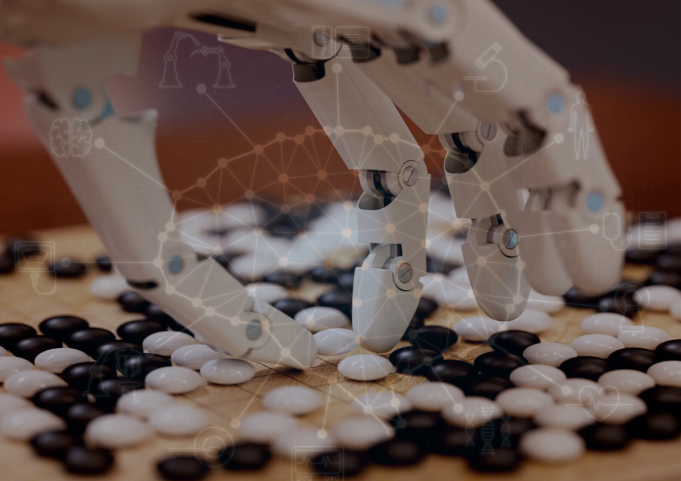Since 2016, Artificial Intelligence (AI) has been able to beat the world’s best Go players. An analysis of millions of Go moves has found that professional players have been making better and more original game choices since AI-playing AIs overtook humans. AI such as AlphaGo, developed by London-based research firm DeepMind, has been able to defeat multiple Go champions, including the then number one ranked human player. AI can now be used as opposition players or as a Go coach to analyze the quality of any given move. AI has become so advanced that it is now considered “superhuman”, and professional players have been able to improve their games as a result.
The introduction of superhuman Go-playing AIs has led to a marked improvement in human play, according to a study conducted by researchers at the City University of Hong Kong. The researchers gathered a dataset consisting of 5.8 million move decisions by professional players between 1950 and 2021. They then used a Go-playing AI to help calculate a measure called a “decision quality index”, or DQI, which assesses the quality of a move. The results showed that the introduction of superhuman Go-playing AIs has led to a significant improvement in the quality of moves made by professional players, with novel moves being made more often. This suggests that the introduction of superhuman Go-playing AIs has had a positive impact on the game of Go, leading to more creative and innovative play.
The analysis of human players’ responses to the advent of superhuman AI in 2016 found that the quality of play had significantly improved. The median annual DQI had risen from values between -0.2 and 0.2 between 1950 and 2015 to values above 0.7 from 2018 to 2021. Additionally, the percentage of games showing novel strategies had risen from 63% in 2015 to 88% in 2018. This suggests that the introduction of superhuman AI has had a positive effect on the quality of human play.
Stuart Russell from the University of California, Berkeley has observed a phenomenon in the 1990s, when backgammon players began changing their opening moves in response to the advent of highly skilled computer players. This same phenomenon is now being seen in the improved human Go playing, as players are making more moves that machines approve of due to the fact that they are training against machines. This shows that AI is playing a role in the assessment of human Go playing, and that the players are adapting to the AI’s feedback.
Noah Goodman of Stanford University in California has published a paper on the cultural transmission of Go-playing AIs back to humans. The paper raises questions about the potential changes to different cultures as a result of interacting with and learning from chatbots. Goodman suggests that the current advances in AI technology, such as chatbots, could lead to abrupt changes in culture, and that further research is needed to understand the implications of this. He encourages further exploration into the potential effects of AI on culture, and how this could shape the future of humanity.













